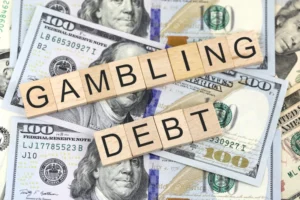Often referred to as ludopathy, gambling addiction is best described as an uncontrolled compulsion to place bets, irrespective of the adverse impacts on one’s life. This disorder can manifest in various gambling activities ranging from casino games, sports wagering, lottery, or digital games.
A person battling with ludopathy persists in gambling regardless of financial loss, relationship strain, and potential harm to their mental and physical health.

Quantifying the exact number of global gambling addiction cases is challenging due to inconsistent data across countries. Nevertheless, the World Health Organization postulates that between 2 to 3 percent of the global population suffer from gambling issues.
This statistic equates to millions of people, highlighting the gravity of this issue on a global scale. It’s important to note though, given the societal stigma attached to gambling problems, numerous individuals refrain from seeking assistance, hence, go unreported in these figures.
The Growth of Gambling Venues, Including Online Platforms
In the past few decades, there has been an impressive surge in the number of gambling venues across the globe. This surge is fueled by a mix of factors, including advancements in technology, more relaxed gambling laws, and a heightened consumer desire for entertainment.
The online gambling segment, in particular, has seen astronomical growth, making gambling opportunities more accessible than they’ve ever been. However, this trend comes with its drawbacks, such as the increased prevalence of problem gambling due to the heightened exposure to gambling opportunities.
Unraveling the Prevalence of the Gambling Industry (and Associated Addiction)
The profitability of the gambling industry hinges on various strategic factors. One of the prominent factors is the wide array of gaming and betting options it offers, targeting a diverse audience and ensuring a consistent flow of income.
Furthermore, the fundamental principle of gambling, built on the foundation of luck and randomness, ensures that digital casinos and betting portals invariably maintain a mathematical benefit over the players. Consequently, they often record greater profits than losses.
This unique business model places the major financial gains from gambling into the hands of gaming companies, casinos, and to some extent, the government bodies garnering taxations from the winnings and overall revenues of these gambling institutions. It’s important to note that the darker side of this industry often benefits illicit syndicates as well.
Comparing Digital and Analog Gambling
With its roots dating back generations, analog gambling is the time-honored form of gaming. It encompasses traditional activities such as playing card games, engaging in board games, or stepping into physical casinos for a round of luck. Comparatively, digital gambling is a newer entrant to the scene, facilitated by the advent of technology. More than just being available via computers and mobile devices, it has permeated the sphere of online platforms, offering a different kind of gaming experience.
These two facets of gambling share numerous similarities, yet digital gambling holds certain unique advantages that seem to magnetize many. Among these benefits is the pure convenience it provides. If you choose to engage in digital gambling, you wouldn’t even need to worry about outdoor dressing or commuting. The opportunity to play is available, day or night, from any location you prefer. However, this ease can sometimes become a double-edged sword.
Unveiling the hidden adverse effects of gambling addiction
For a handful of people, gambling might be a thrilling hobby, and even a lucrative one. However, on the flip side, it can manifest as a damaging addiction for others, severely impacting their lives. This addiction development can be spurred by various factors, such as genetic predisposition, brain chemical makeup, and significant life events. Intriguingly, gambling addiction is often less about procuring winnings and more about the irresistible thrill generated by the act of gambling itself.
Devastating outcomes often follow the path of gambling addiction. Individuals plagued by this disorder might experience mental health issues like depression and anxiety or financial woes to the point of bankruptcy.
Their interpersonal relationships may become strained as gambling takes center stage, overshadowing quality time with family and friends. In the most extreme situations, gambling-induced addiction or substantial debt can tragically culminate in suicide.
Another instance of conflicting interests?
The pervasive issue of gambling addiction is a deep-seated problem that impacts countless individuals globally. Nevertheless, it seems it’s a case of business as usual, with those in a position to address the issue failing to do so.
Certain gaming establishments or internet-based applications warrant prohibition. Even though everyone has the liberty to gamble, it doesn’t justify the accessibility of such temptation for those whose financial stability and family welfare are at stake.
[…] use disorders and behavioral addictions. Behavioral addictions can involve activities such as gambling, shopping, pornography or excessive internet or social media use. And clearly the form of addiction […]